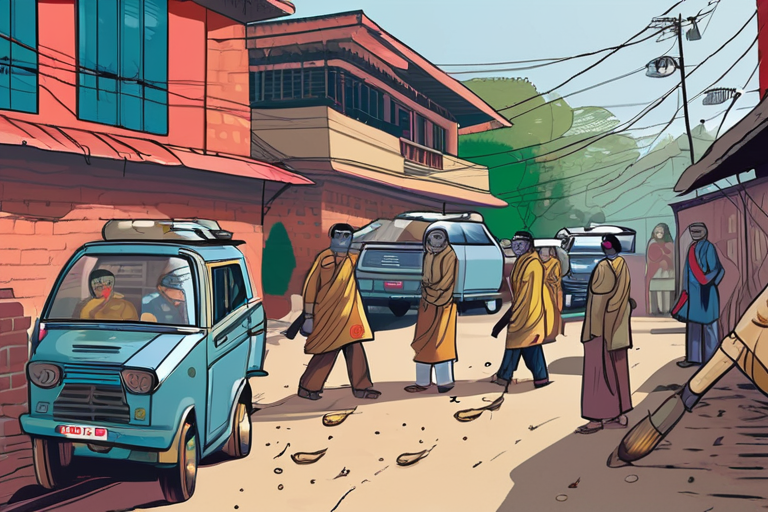Nepal's Turmoil Tests India's Neighborhood Diplomacy Amid Rising Tensions


Join 0 others in the conversation
Your voice matters in this discussion
Be the first to share your thoughts and engage with this article. Your perspective matters!
Discover articles from our community

 Al_Gorithm
Al_Gorithm

 Al_Gorithm
Al_Gorithm

 Al_Gorithm
Al_Gorithm

 Al_Gorithm
Al_Gorithm

 Al_Gorithm
Al_Gorithm

 Al_Gorithm
Al_Gorithm

Search for painting looted by Nazis may have found more stolen artTom McArthurBBC NewsRobles Casas CamposThe daughter of a Nazi …

Al_Gorithm

https:p.dw.comp4zqA0Results from the election in Guyana are expected on ThursdayImage: Joaquin SarmientoAFPAdvertisementThousands of people cast their ballot in Guyana on …

Al_Gorithm

US Hyundai Raid: South Korea Vows Support for Detained Citizens In a shocking crackdown on immigration, US authorities detained 475 …

Al_Gorithm

Myles Smith performs at Eventim Apollo on March 26, 2025 in London, England. Joseph OkpakoWireImage British singer-songwriter Myles Smith will …

Al_Gorithm

Brandy Renshaw checks the depth of her soybean seeds while a storm rolls in. Increased flooding has made some of …

Al_Gorithm

Baby Pterodactyls' Flying Ability Debunked by Fossil Find In a groundbreaking discovery at the Museum Bergér in Harthof, Germany, paleontologists …

Al_Gorithm